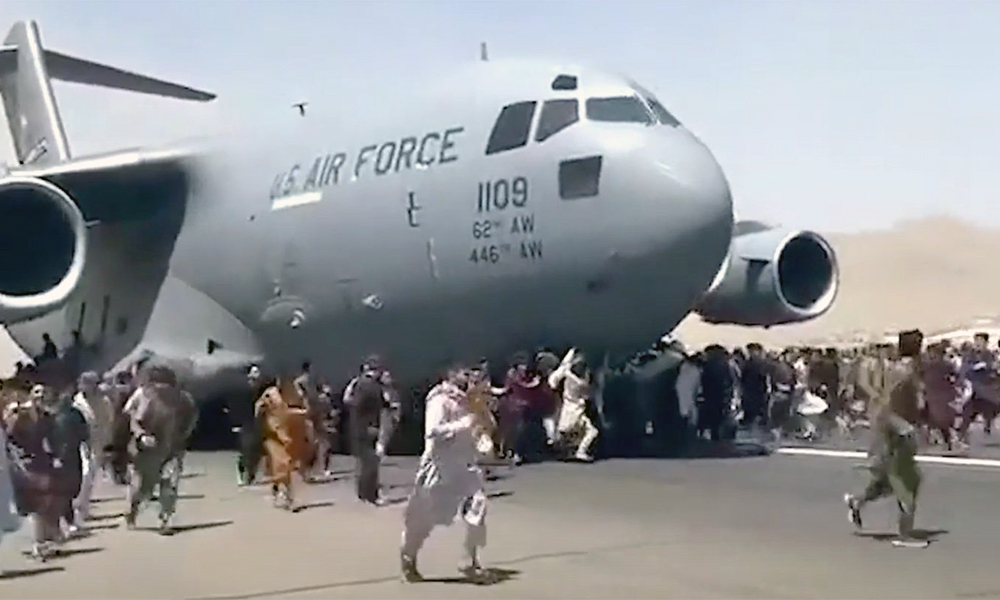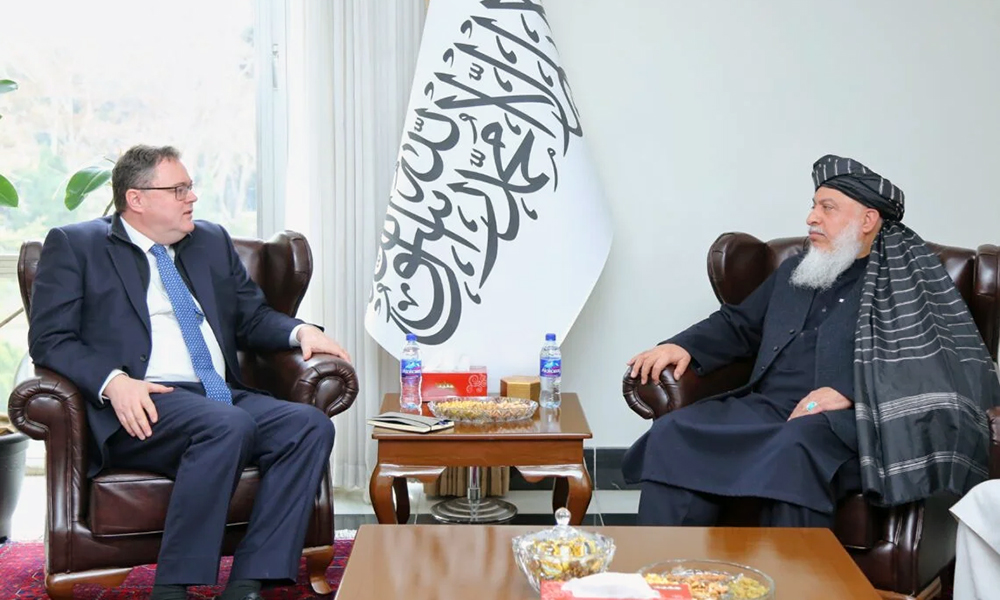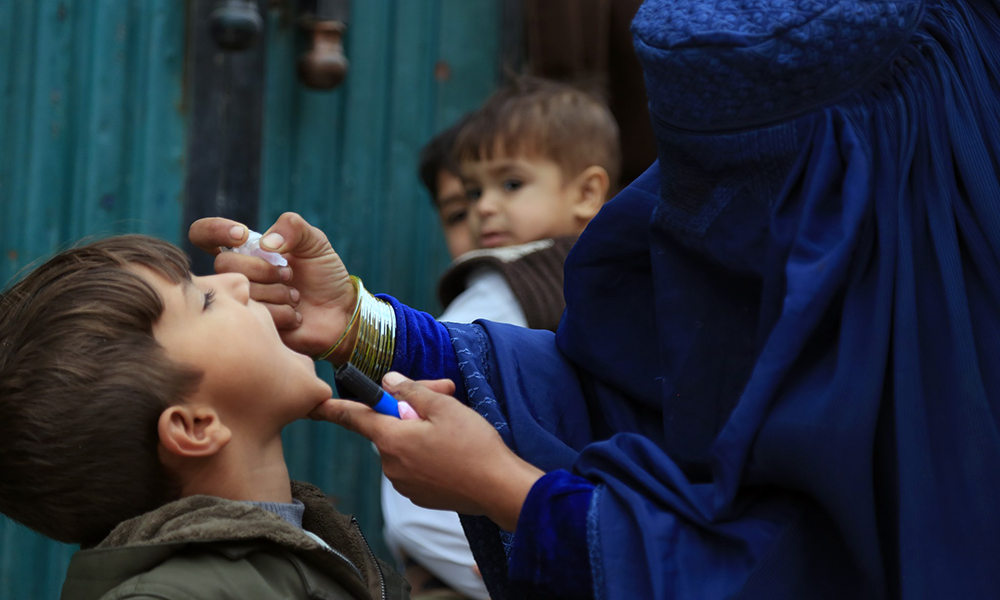Latest News
West has inflicted catastrophic damage on Afghanistan: UK’s Miliband

The West has inflicted catastrophic damage on Afghanistan and its own reputation by imposing a policy of starvation on the country, said the UK’s former foreign secretary David Miliband, who is now chief executive of the International Rescue Committee.
“If we wanted to create a failed state we could not have a more effective policy mix than the one we have at the moment,” he told the Guardian.
Miliband has been instrumental in lobbying the Biden administration and the World Bank to release Afghanistan’s frozen assets, not only for humanitarian aid but also to start reconstructing the economy, the Guardian reported.
“I simply do not understand the lack of urgency to get this thing moving. It genuinely befuddles me that we should have allowed this to get so much worse so quickly,” he said.
He told the Guardian the crisis was so deep that the UN’s appeal for $4bn this year, due to be addressed at a pledging conference next month, was likely to rise to $10bn next year.
The Guardian reported however that reports have emerged that the World Bank board may meet in March to release as much as $1.3 billion that it has so far refused to release.
“What we are doing is not making it worse for the Taliban (IEA), it is making it worse for the people. We are not punishing the Taliban (IEA). It is ordinary Afghans that are paying the price of peace. It is not just a catastrophe of choice, but a catastrophe of reputation. This is a starvation policy,” Miliband said.
He said four problems needed to be addressed urgently if the country was to survive the remainder of the winter.
“There is no money to pay salaries. Some teachers and hospital workers have not been paid since April. That has to change.
“The US sanctions continue to have a chilling effect on commercial activity even though there are carve-outs in US and international sanctions for humanitarian purposes. The carve-out does not touch commercial entities so if you are a private agricultural or food importer who has to touch the government at the border in some way you are scared you are going to get caught up in the sanctions.
“Then there is the liquidity crisis, so there is no capital underpinning the banking system so no one can lend or pay for imports. Finally there are no technocrats or expertise in the Central Bank – they have all left. All this can be done without having to get into the issue of recognition of the Taliban (IEA).
“Together this is causing an economic freeze and in these tragic circumstances you can give more aid until you are blue in the face, and it will not solve the structural problems. I am in the ridiculous position of running an aid agency and I am saying ‘don’t just give out humanitarian aid, you have to underpin the economy’,” he told the Guardian.
Latest News
Eight Afghan migrants die as boat capsizes off Greek island

Eight Afghan migrants died after a speedboat carrying migrants capsized off Greece's eastern island of Rhodes on Friday, the Associated Press reported.
Greek authorities said that the capsizing was the result of the boat’s maneuvering to evade a patrol vessel.
A total of 18 migrants — 12 men, three women and three minors — all Afghan nationals, were rescued, Greece's coast guard said Saturday. The dead were also from Afghanistan, it said.
Some migrants remained hospitalized, with one in critical condition, authorities said.
Two Turkish citizens, ages 23 and 19, were arrested as the suspected traffickers. The boat sank after capsizing, the coast guard said.
The sinking off Rhodes was the second deadly incident involving migrants in the past week.
Seven migrants were killed and dozens were believed missing after a boat partially sank south of the island of Crete over the weekend — one of four rescue operations during which more than 200 migrants were rescued.
Latest News
Norwegian Chargé d’Affaires meets with IEA deputy foreign minister
Welcoming the diplomat’s visit to Kabul, Stanikzai underscored the importance of political relations between Afghanistan and Norway, the foreign ministry said in a statement.

The Norwegian Chargé d’Affaires for Afghanistan, Per Albert Ilsaas, on Saturday met with IEA’s Deputy Foreign Minister for Political Affairs, Sher Muhammad Abbas Stanikzai, in Kabul.
Welcoming the diplomat’s visit to Kabul, Stanikzai underscored the importance of political relations between Afghanistan and Norway, the foreign ministry said in a statement.
In addition to focusing on bilateral political, humanitarian, and other pertinent issues, the two sides expressed hope that continued engagement would lead to constructive solutions to related issues.
This comes two weeks after the Foreign Ministry Spokesman Abdul Qahar Balkhi expressed disappointment regarding the decision by the Norwegian government to downgrade diplomatic relations with Afghanistan.
Balkhi said in a post on X that such decisions should not be linked with internal affairs of other countries.
“Diplomatic engagement is most effective when it fosters mutual understanding and respect, even amidst differing viewpoints,” he stated.
“Access to consular services is a fundamental right of all nationals. We strongly urge all parties to prioritize this principle in the spirit of international cooperation,” he added.
Latest News
A new polio vaccination campaign is set to launch in Afghanistan
Afghanistan and Pakistan are the only two countries in the world where polio has not been eradicated.

The “Afghanistan Polio-Free” organization announced that a new round of polio vaccinations will begin on Monday, December 23, in various provinces of Afghanistan.
The organization did not specify which provinces will be targeted or how long the vaccination campaign will last.
Afghanistan and Pakistan are the only two countries in the world where polio has not been eradicated.
On December 4, 2023, the World Health Organization (WHO) issued a statement reporting a 283% increase in polio cases in Afghanistan. According to the WHO, the number of positive environmental samples for wild poliovirus type 1 in Afghanistan in 2024 reached 84, compared to 62 cases in 2023.
The Ministry of Public Health claimed in November 2024 that no new cases of polio had been reported in Afghanistan for the year.
-

 Sport4 days ago
Sport4 days agoZimbabwe’s opening ODI against Afghanistan abandoned
-

 World3 days ago
World3 days agoNorth Korean troops suffer 100 deaths, struggling in drone warfare, South Korea says
-

 Latest News3 days ago
Latest News3 days agoTwo horror accidents on Kabul-Kandahar highway leave 52 dead
-

 Latest News1 day ago
Latest News1 day agoAfghan men must stand with women to support viable future of country: US envoy
-

 Sport3 days ago
Sport3 days agoAfghanistan crush Zimbabwe by 232 runs in second ODI
-

 International Sports4 days ago
International Sports4 days agoLanka T10: Kandy Bolts in at 4th spot in playoffs after thrilling day
-

 Regional4 days ago
Regional4 days agoIran’s president to make rare visit to Egypt for D-8 summit
-

 Tahawol5 days ago
Tahawol5 days agoTahawol: Latest developments in Syria reviewed
























